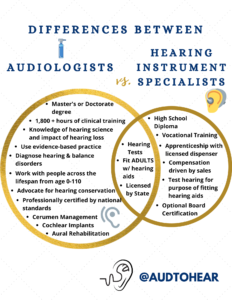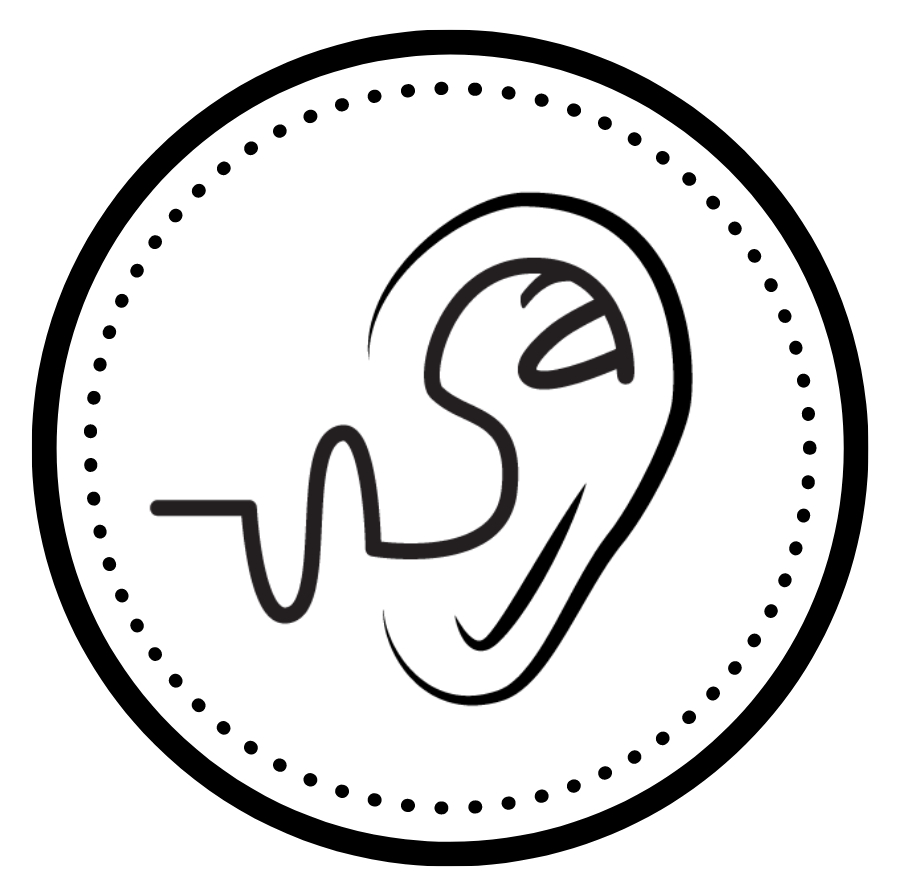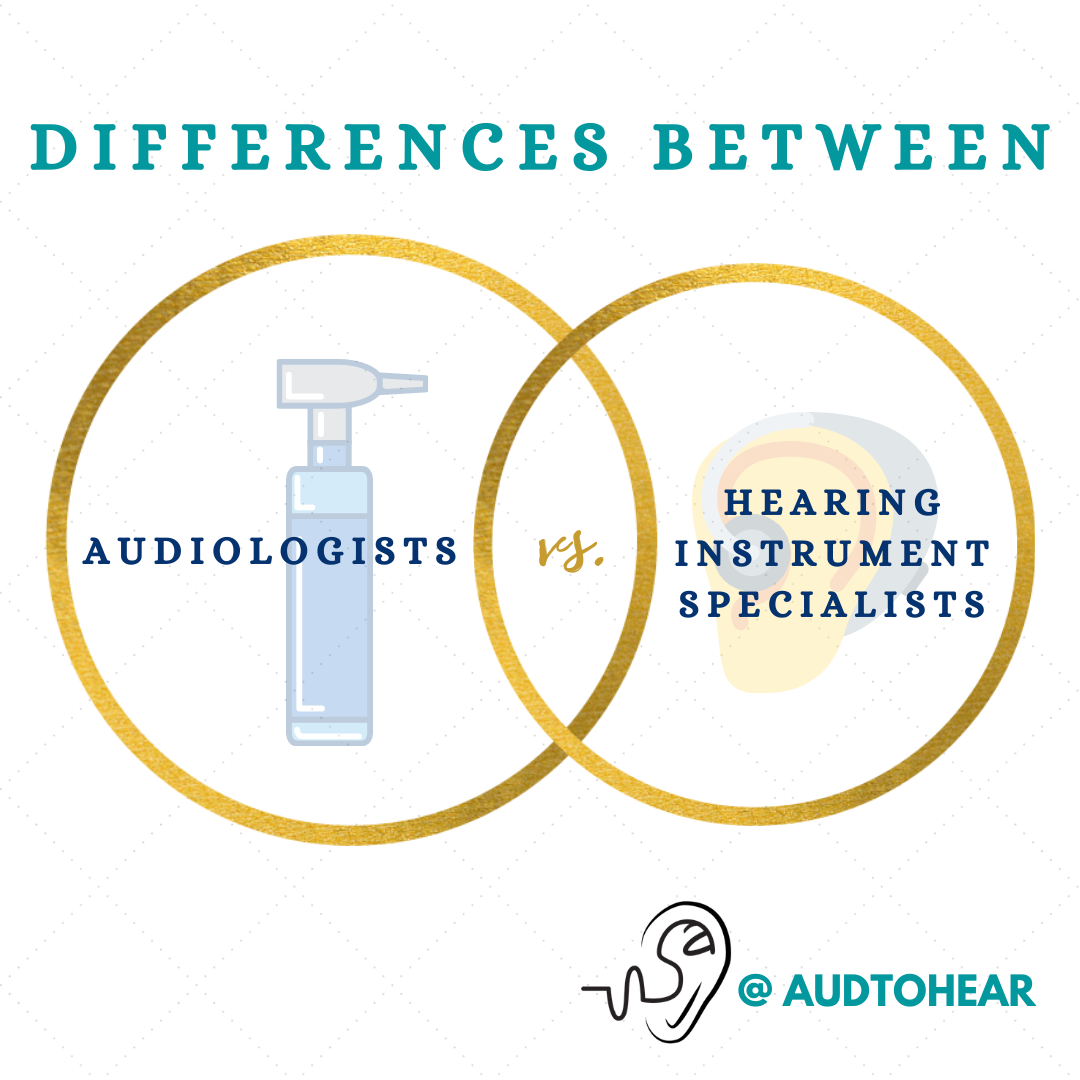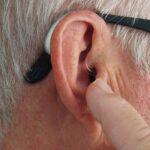Hearing loss can affect people of all ages.
It is a health condition that is most prevalent in older adults over the age of 65, but there are many other risk factors that could lead to early development of hearing loss (e.g. genetics, recreational or work noise exposure, ototoxic medications, etc.). Who do you go to for help? Who can you trust to help you improve your hearing?
Also, what’s the difference between an Audiologist and a Hearing Instrument Specialist? What are the advantages of seeing one versus the other?
The answer: the choice is yours. It depends on what your needs are. It depends on how accessible they are to help you understand your hearing loss and options. The advantages of seeing one provider compared to another will vary and is entirely subjective!

Audiologists:
- Minimum level of education: Master’s or Doctorate of Audiology
- 1,800 + hours of clinical training under licensed audiologists
- Diagnose hearing loss and assess vestibular disorders
- Knowledge of hearing science and impact of hearing disorders socially, mentally, and physically
- Trained to utilize evidence-based practice
- Work with individuals across the lifespan from age 0 to 110
- Evaluate cochlear implant candidacy and programming
- Aural rehabilitation
- Cerumen (earwax) management
- Professionally certified by national standards (AAA, ASHA, ABA, ADA)
- Educate about hearing protection/conservation in recreational and occupational settings
BOTH:
- Perform hearing tests
- Fit ADULTS with hearing aids
- Take earmold impressions
- Licensed by State through different governing bodies
Hearing Aid Dispensers/Instrument Specialists:
- Minimum level of education: high school diploma
- 2-3 years of vocational training
- Training may consist of apprenticeship with a licensed hearing aid dispenser
- Perform hearing tests for the purpose of fitting and programming hearing aids
- Compensation likely driven by sales
- Board Certification in Hearing Instrument Sciences is optional
There are many differences between a licensed audiologist and hearing aid dispenser or instrument specialist. Audiologists have a much larger scope of practice. If you have the classic: bilateral, symmetric sensorineural hearing loss and all you want is to try wearing hearing aids, you have more flexibility to choose who you want to work with.
If your hearing problems or symptoms are slightly more complicated, you will want to see a professional who has the training and knowledge to help you understand what’s going on.
Ultimately, the decision is yours.
I can only hope that whoever you decide to work with is using best practices (e.g. real ear measures for hearing aid fittings) and is fully invested in helping you hear better. Hearing loss management is a team effort with you, your communication partners, and your provider.
Before you go, check out the following video about audiologists vs. hearing instrument specialists from Dr. Cliff, an audiologist in Arizona who has his own Youtube channel to promote hearing loss awareness:





Thanks for the info Dr. Janice. I am more informed on who I need to see for my hearing loss situation.
If you suspect having hearing loss, I would reach out to your primary care doctor for a referral OR you can also Google search for local audiologists near you to get a hearing test!
This is a topic which is close to my heart… Take care! Where are your contact details though?